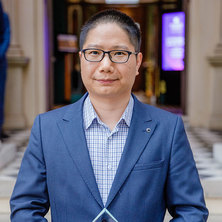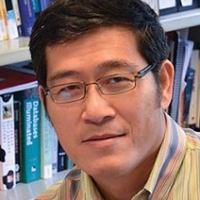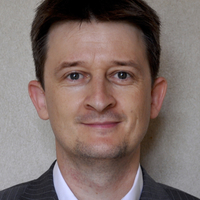Keynotes
 Prof. Hongzhi Yin
Prof. Hongzhi Yin
The university of Queensland, Australia |
Short bio:
A/Prof. Hongzhi Yin works as ARC Future Fellow and associate professor with The University of Queensland, Australia. He was recognized as Field Leader of Data Mining & Analysis in The Australian's Research 2020 magazine, the recipient of the 2022 AI 2000 Most Influential Scholar Honorable Mention in Data Mining (10 Years Impact), and featured among the World's Top 2% Scientists List published by Stanford University and AD Scientific Index 2022 (5 Years Impact). He received his doctoral degree from Peking University in July 2014, and his Ph.D. Thesis won the highly competitive Distinguished Doctor Degree Thesis Award of Peking University. His main research interests include recommender systems, graph embedding and mining, chatbots, social media analytics and mining, edge machine learning, trustworthy machine learning, decentralized and federated learning, and smart healthcare. He has published 230+ papers with H-index of 54, including 24 most highly cited publications in Top 1% (CNCI), 130 CCF A and 70+ CCF B, 130 CORE A* and 70+ CORE A, such as KDD, SIGIR, WWW, WSDM, SIGMOD, VLDB, ICDE, AAAI, IJCAI, ACM Multimedia, ECCV, IEEE TKDE, TNNL, VLDB Journal and ACM TOIS. He is the leading author (first/co-first author or corresponding author) for 150+ of them. He has won 6 Best Paper Awards, including Best Paper Award at ICDE 2019, Best Student Paper Award at DASFAA 2020, ACM Computing Reviews' 21 Annual Best of Computing Notable Books and Articles, and Best Paper Award Nomination at ICDM 2018 (being invited to be published in KAIS special issue of best papers). He has been an SPC/PC member for many top conferences such as AAAI, IJCAI, KDD, ICML, ICLR, NeurIPS, SIGIR, WWW, WSDM, VLDB, ICDE, ICDM and CIKM. He is currently serving as Associate Editor/Guest Editor/Editorial Board for ACM Transactions on Information Systems (TOIS), ACM Transactions on Intelligent Systems and Technology (TIST), Journal of Computer Science and Technology (JCST), Big Data Networks (specialty section of Frontiers in ICT, Frontiers in Digital Humanities, Frontiers in Big Data and Frontiers in Computer Science), Springer Nature Computer Science, Information. For more details about Dr. Hongzhi Yin, please refer to his homepage https://sites.google.com/site/dbhongzhi/.
Keynote Title: Information Network Embedding for A New Generation of Geosocial RecommendationsAbstract: The rapid development of mobile Internet, location acquisition and 5G communication technologies has fostered a profusion of geo-social networks (e.g., Foursquare, Yelp and Google Place). They provide users an online platform to check-in at points of interests (e.g., cinemas, galleries and hotels) and share their life experiences in the physical world via mobile devices. The new dimension of location implies extensive knowledge about user behaviours and interests by bridging the gap between online social networks and the physical world. It is crucial to develop new geo-social recommendation services for both individual users and groups to explore the new places, attend new events and find their potential partners to attend these events together. This keynote will introduce three emerging geo-social recommendation paradigms and their new challenges: spatial item recommendation for mobile users, spatial item recommendation for dynamic groups, and joint spatial item and partner recommendation. This keynote will also explore how to adopt and advance the network embedding techniques to address the new challenges in the three geo-social recommendation services.
 Prof. Haibin Zhu
Prof. Haibin Zhu
Nipissing University, Canada |
Short bio:
Prof. Haibin Zhu is a Full Professor and the Coordinator of the Computer Science Program, Founding Director of Collaborative Systems Laboratory, Nipissing University, Canada. He has published (and been accepted) over 200 research works including 30+ IEEE Transactions articles, six books, five book chapters, three journal issues, and four conference proceedings. He is a fellow of the International Institute of Cognitive Informatics and Cognitive Computing (I2CICC), a senior member of IEEE and ACM, and a full member of Sigma Xi.
He is serving as a member, Board of Governors, and co-chair of the technical committee of Distributed Intelligent Systems, IEEE Systems, Man and Cybernetics (SMC) Society. He is the Editor-in-Chief, IEEE SMC Magazine; and an Associate Editor (AE) of IEEE Transactions on SMC: Systems, IEEE Transactions on Computational Social Systems, Frontiers of Computer Science, and IEEE Canada Review.
He is the creator of the E-CARGO model and the proposer of the Role-Based Collaboration (RBC) methodology. He has offered over 80 invited talks including keynote and plenary speeches on topics related to E-CARGO and RBC.
He is the receipt of the meritorious service award from IEEE SMC Society (2018), the chancellor’s award for excellence in research (2011) and two research achievement awards from Nipissing University (2006, 2012), the IBM Eclipse Innovation Grant Awards (2004, 2005), the Best Paper Award from the 11th ISPE Int’l Conf. on Concurrent Engineering (ISPE/CE2004), Educator’s Fellowship of OOPSLA’03, a 2nd class National Award for Education Achievement (1997), and three 1st Class Ministerial Research Achievement Awards from China (1997, 1994, and 1991).
For more details, please refer to: https://uts.nipissingu.ca/haibinz/.
Abstract:
Humans are social beings and people cannot live alone. Social computing is an interdisciplinary area across social behavior and computational systems. It is a long-term, cutting-edge topic in the interdisciplinary field where information technology, computer science, social science, behavioral science, and sociology overlap. Creating or recreating social conventions and social contexts is the major goal of social computing.
Role-Based Collaboration (RBC) has been proposed as a computational approach to facilitating collaboration. It utilizes roles as underlying mechanisms to support collaboration by taking advantage of roles. It is divided into several phases: role negotiation, role assignment, role execution, and role transfer. RBC and its related components are an abstract model, which is a perfect mapping for social activities, because social and economic systems are typical collaboration systems.
The Environments – Classes, Agents, Roles, Groups, and Objects (E-CARGO) model, which has been developed into a general model for complex systems, have a good match for the requirements of social computing. In this talk, we establish the fundamental requirements for social computing and demonstrate that RBC, E-CARGO, Group Role Assignment (GRA), and Adaptive Collaboration (AC) methodologies and models are highly qualified to meet these requirements. Based on RBC, E-CARGO and GRA, we present a new approach to social simulation with E-CARGO related components, models, and algorithms.
This talk also illustrates several interesting case studies of social computing: 1) a comparison between collectivism and individualism; 2) how to acquire the preferred position in a team of collectivism; 3) why the USA president opposes globalization; 4) A social paradox for Pareto 80/20 rule; and 5) A new perspective for Pareto Improvement. Through these case studies, E-CARGO has been verified to be a novel promising methodology for social (behavior) simulation by competing with conventional agent models. All the related Java codes can be downloaded by GitHub: https://github.com/haibinnipissing/E-CARGO-Codes.
Our continuous research on RBC and E-CARGO informs that social, behavioral, political, and economic phenomena can be explained by GRA, which demonstrates a collective team effort. GRA with constraints and GRA with multiple objectives can be further applied to reproduce more complex phenomena in these areas. It is believed that there are numerous opportunities for research along with the presented directions.
 Prof. Bruce Lander
Prof. Bruce Lander
Matsuyama University, Japan |
Short bio:
Bruce Lander is a professor in the Graduate School of Language and Communication at Matsuyama University, the host of BESC 2022, here in Japan. He has been a foreign language teacher for over 20 years, most of which here in Japan. After completing a PhD in blended learning on the use of technology in education, he now focuses his attention on helping others learn about the benefits technology can provide education through various professional development projects. His other research areas include, Formative Assessment, MALL, Lesson Study and Intercultural Communication. Bruce has published widely in these fields with his most recent publication being a book chapter in Managing School Intellectual Capital for Strategic Development edited by Eric Cheng, 2022, published by Routlege.
Keynote Title: E-Learning and Online Learning as an Innovative Capital in Japanese Schools
Abstract: In the context of ICT education, Japan’s Ministry of Education, Culture, Sports, Science and Technology (MEXT) has recently published education policies on the promotion and facilitation of teaching with and learning with technology at elementary, lower secondary and upper secondary schools (Tsuchiya, 2015; Fukuda et al., 2018). In April 2016, MEXT announced a plan to promote the ‘digitisation of education’ in schools in Japan. This announcement emphasised that school students in Japan should be encouraged to consider what matters in their learning settings, collaborate with others, struggle with creating new values, and work better to find and solve problems using ICT with computers and other devices such as iPads and PC tablets. This coincides with the official introduction of ICT and computer programming in the national school curriculum from the spring of 2020. The prime goal of this drive was to motivate students and keep up with other developed nations, such as Finland, where the use of such tools is already well established. However, unfortunately, several reports suggested (Gobel & Kano, 2014; Lockley, 2011; Cote & Milliner, 2017; Funamori, 2017) that Japanese students and their level of ICT digital literacy at the school and university level seem to be below the international standard. This plenary presentation will introduce the current state of ICT at schools in Japan, the route it has taken to get there and the future path it hopes to proceed. As the global pandemic continues, fear of teaching ever returning completely to normal may remain. With this regard, hopefully attendees will be introduced to a number of tools that you can adopt to your teaching regimes including areas involved in formative assessment and self-regulated learning.
 Prof. Yong Tang
Prof. Yong Tang
South China Normal University, China |
Short bio:
Yong Tang is the founder of SCHOLAT, a kind of scholar social network. He is now a Professor of the School of Computer Science at South China Normal University. He got his BS and MSc degrees from Wuhan University in 1985 and 1990 respectively, and PhD degree from University of Science and Technology of China in 2001, all in computer science. Before joined SCNU in 2009, he was vice Dean of School of Information of Science and Technology at Sun Yat-Sen University. He has published more than 200 papers and books. He has supervised more than 40 PhD students since 2003 and more than 100 Master students since 1996. His main research areas include data and knowledge engineering, social networking and collaborative computing. He currently serves as the director of technical committee on collaborative computing of China Computer Federation (CCF) and the executive vice president of Guangdong Computer Academy. For more information please visit https://scholat.com/ytang
Keynote Title: Scholar-Oriented Social Network and ApplicationsAbstract:
Social networks are changing our daily lives. In order to meet the needs of research and teaching, we designed a social network named SCHOLAT, which provides a platform for scholars to cooperate in research and teaching. In this talk, I will briefly introduce the usage of SCHOLAT through real examples, analysis the big data in SCHOLAT, and propose an application mode of SCHOLAT+. Finally, I'll introduce several applications based on SCHOLAT.